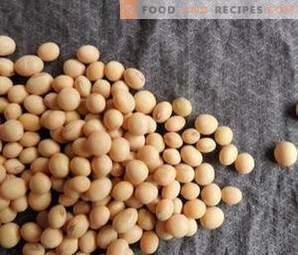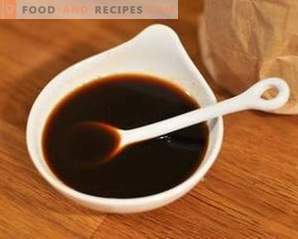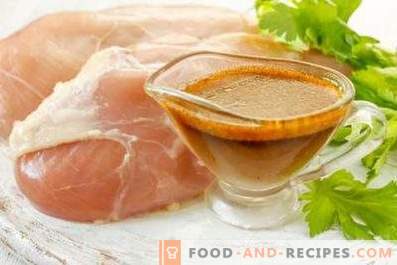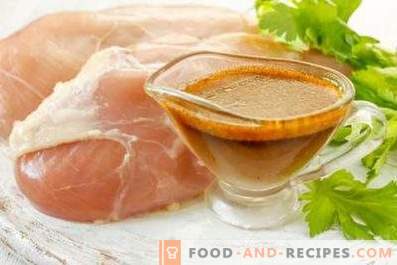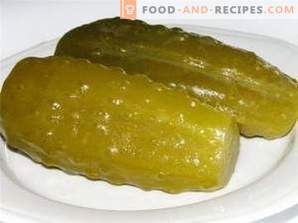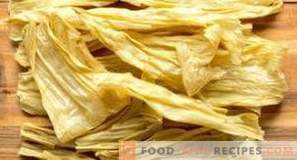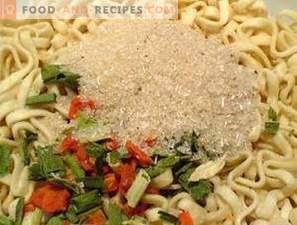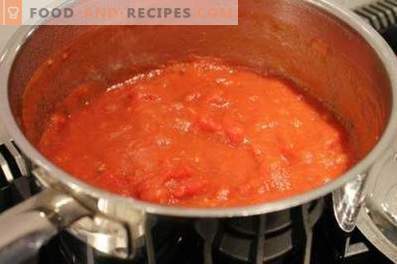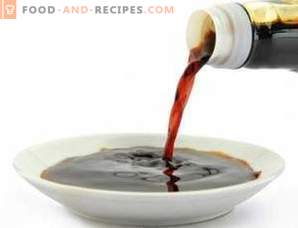
Soy sauce gained popularity along with Japanese cuisine: when our man tasted the beauty of sushi, sashimi, wasabi, pickled ginger, he also liked this unusual sauce. Now it is used not only as an additive to the culinary delights of the country of the rising sun, but also to improve the taste of the traditional Russian dishes we are used to. Since he has entered our diet so tightly, has taken a permanent position in the kitchen cabinet, it is wise to know what soy sauce is made from, whether it is healthy or harmful, and whether it can be given to children. Moreover, there is information that soy sauce is the strongest carcinogen and it is dangerous to live in food. But at the same time, a living example is the slender, youthful Japanese longevity who spend this sauce on an industrial scale and do not think a single day without it. How are things really?
Useful properties of soy sauce
Soy sauce is made from soybeans - beans that are now widely known. That is, the quality of soy sauce directly depends on what raw material was used. Soy can be environmentally friendly, useful and very cheap, harmful, genetically modified, so when buying soy sauce it is reasonable, firstly, to read the composition on the label, and secondly, to give preference to well-known, well-proven brands. The price is also of great importance, since soy sauce is prepared quite difficult, it goes through the fermentation process like wine or vinegar, and the correspondingly low cost directly indicates its poor quality. It is possible that cheap soy sauce is made from genetically modified soybeans and can be a harmful, carcinogenic product. At the same time, high-quality sauce contains a lot of valuable substances and brings great benefits to the body. Soy sauce can be called a leader in the content of amino acids, which are the most effective antioxidants and - substances that rid our body of free radicals and other toxins. Free radicals are decay products, in small quantities the body needs them to fight viruses and bacteria. But they have a tendency to accumulate exponentially, and their excess entails rapid aging, diseases, and the development of oncological diseases. Soy sauce perfectly cleanses the body of these substances, it returns the tissues of their former healthy state, rejuvenation takes place, the work of all organs and systems is normalized. The constant use of high-quality soy sauce keeps free radicals under control, prevents them from spreading and causing harm. For clarity, you can make this comparison: soy sauce contains 150 times more antioxidants than any citrus fruit.
Soy sauce has a good effect on blood vessels and the cardiovascular system, twice improves blood circulation. This leads to the fact that the peripheral parts of the body begin to be better supplied with blood and oxygen, as a result of which inflammations, lymphatic stasis, pain, numbness and other problems disappear. It also affects the deposition of fat - they begin to burn faster, there is a natural weight loss. Metabolism is accelerating and new fats entering the body, more actively pass into energy. At the same time, the caloric content of soy sauce is not great, for every 100 grams of this product there are only about 70 calories. In soy sauce there are phytoestrogens substances, they are especially useful for women of menopausal age, as well as those who suffer from painful menstruation and premenstrual syndrome. The sauce will help relieve headaches and get rid of insomnia.
Harm of soy sauce
Proper and high-quality soy sauce does not contain preservatives and can be stored for very long. But any sauce contains a lot of salt, it must be borne in mind, adding it to ready meals, eating with diet and kidney disease. Despite its low calorie content, it can hold water and increase weight. It should refrain from people with intolerance to soy, vegetable protein, in violation of protein deception in the body. Pregnant and lactating women should not eat soy sauce or should reduce its volume to a minimum. It is also contraindicated in children under 3 years.
